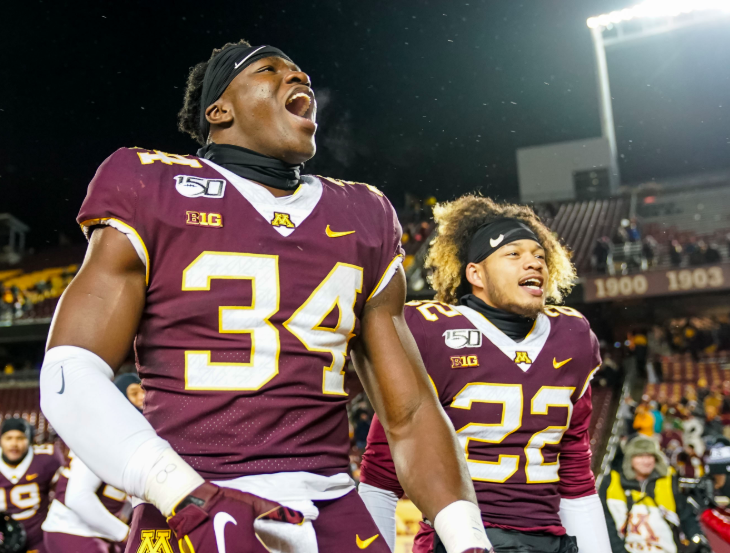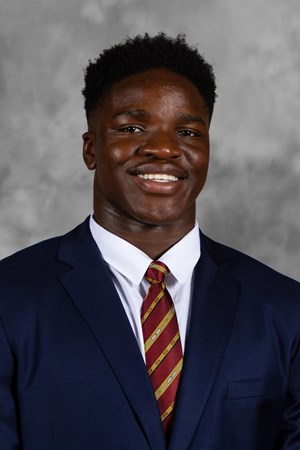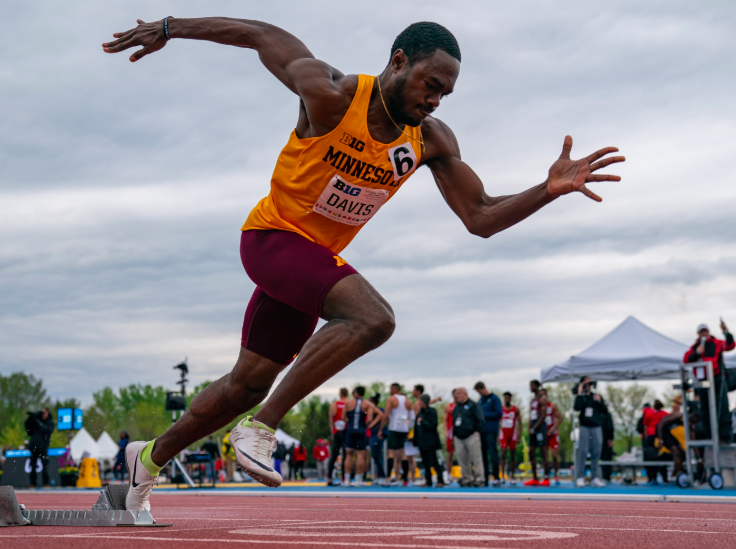
Boye Mate and a teammate. Photo via Brace Hemmelgarn

Share
In September the California Senate passed Bill No. 206, a bill that sees both concern and excitement from those familiar with the NCAA.
According to the California State Legislature, “[t]he bill would prohibit a team contract from preventing a student athlete from using the athlete’s name, image, or likeness for a commercial purpose when the athlete is not engaged in official team activities.”
This means that college athletes might see sponsorships in the near future.
Athletes at the U are tracking the bill’s expected arrival in California in 2023 and may even get to see a similar bill come to Minnesota.
According to a spokesperson responding on behalf of Mark Coyle, Athletics Director at the U, “Minnesota has started the legislative process toward a similar bill.”
“We are a legacy member of the Big Ten and will work closely with Commissioner Warren, the conference and President Gabel on this matter moving forward for a national solution,” said the spokesperson.
Although it’s still uncertain if anything like S.B. 206 will ever make its way to the University of Minnesota, the possibility has some excited for the future of the NCAA while also sparking debate.
After the bill was passed in California, the NCAA released a statement:
“…it would erase the critical distinction between college and professional athletics and, because it gives those schools an unfair recruiting advantage, would result in them eventually being unable to compete in NCAA competitions.”
Despite these concerns, some athletes at the University of Minnesota see potential in this bill for good.

“Instead of focusing on money, they can focus on their sport [and] school,” said Boye Mafe, defensive lineman for the University of Minnesota football team.
While on the team, some players also hold jobs and support family.
Meanwhile, others believe that student athletes already receive most of the support they need to succeed in college.
Elliott Davis, a sprinter on the track and field team, can see the benefits of having S.B. 206 in place, but has some other thoughts.
“The school already gives [athletes] so much,” said Davis.

Davis mentioned that athletes already receive several benefits through the university for being on a team.
Some of these benefits include, but are not limited to: priority registration, stipends, scholarships, dinner Monday through Thursday, trainers, a “nutrition bar” that serves snacks, special academic counseling, tutoring, and an athlete-only bus that runs during particular hours.
Additionally, Davis and Mafe offered ideas as to how the University should adjust if S.B. 206 came to Minnesota.
Both student-athletes mentioned making sure money is distributed to others.
Davis suggested lowering scholarships for those who receive sponsorships. That way those scholarships could be distributed to others who need it.
Meanwhile, Mafe suggests pooling money.
“I feel like [sponsorship money] should be pooled to make more scholarships for the team… so instead of allowing a team to have 70 scholarships,” said Mafe, “allow them to give out more scholarships; allow more money to be given as stipends for the whole team.”
Despite Mafe’s excitement, he also has some concerns.
Schools that already have a lot of money and are successful in getting their players sponsorships might have an advantage over others.
“[I]t would dilute college sports and make all these powerhouses even more of powerhouses,” said Mafe, “everyone would just want to go to schools where they could get the most money.”
Mafe also expressed concern that some positions on the field would receive uneven recognition from sponsors.
“Maybe they’re not the star player, but they’re the role player that makes everyone look good. Especially in football, you have a lot of people who work together to make the team work, but probably only about three to four positions that usually get a lot of attention for what they do,” said Mafe.

